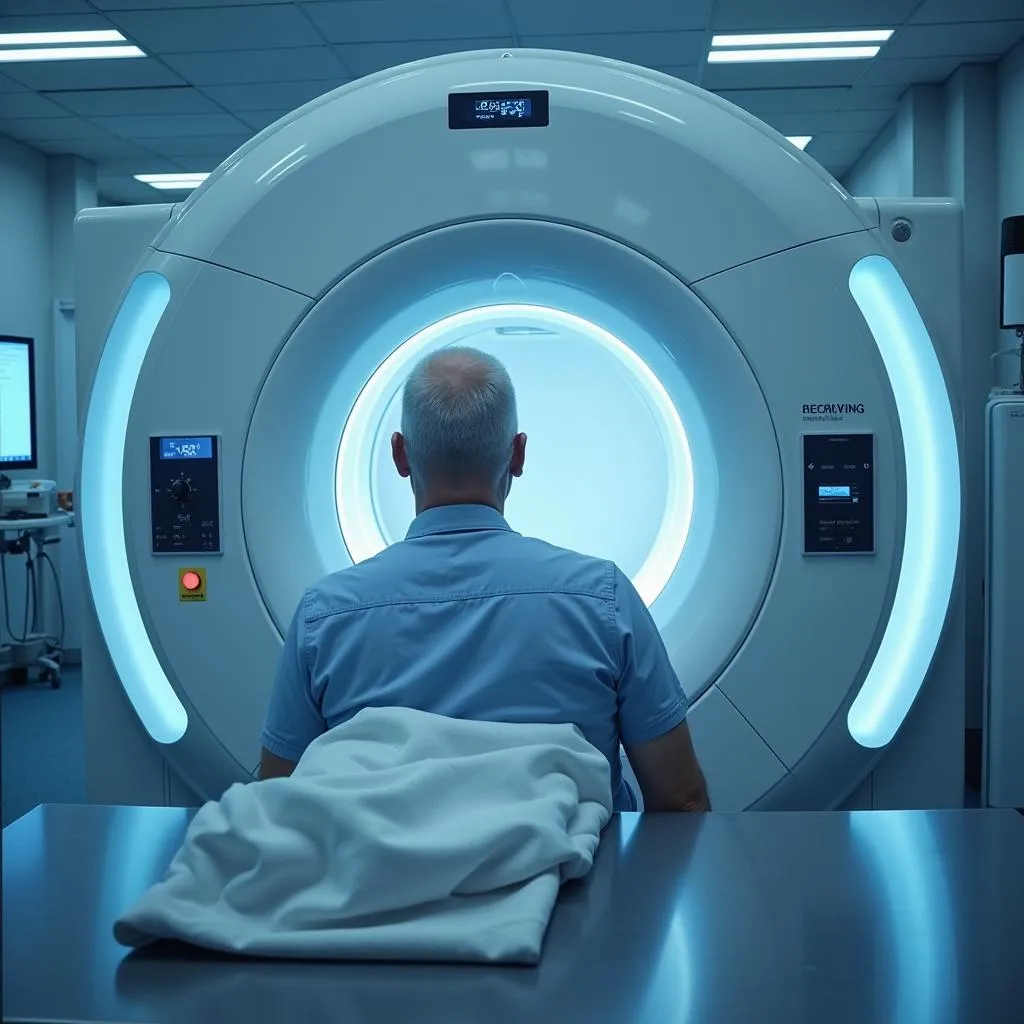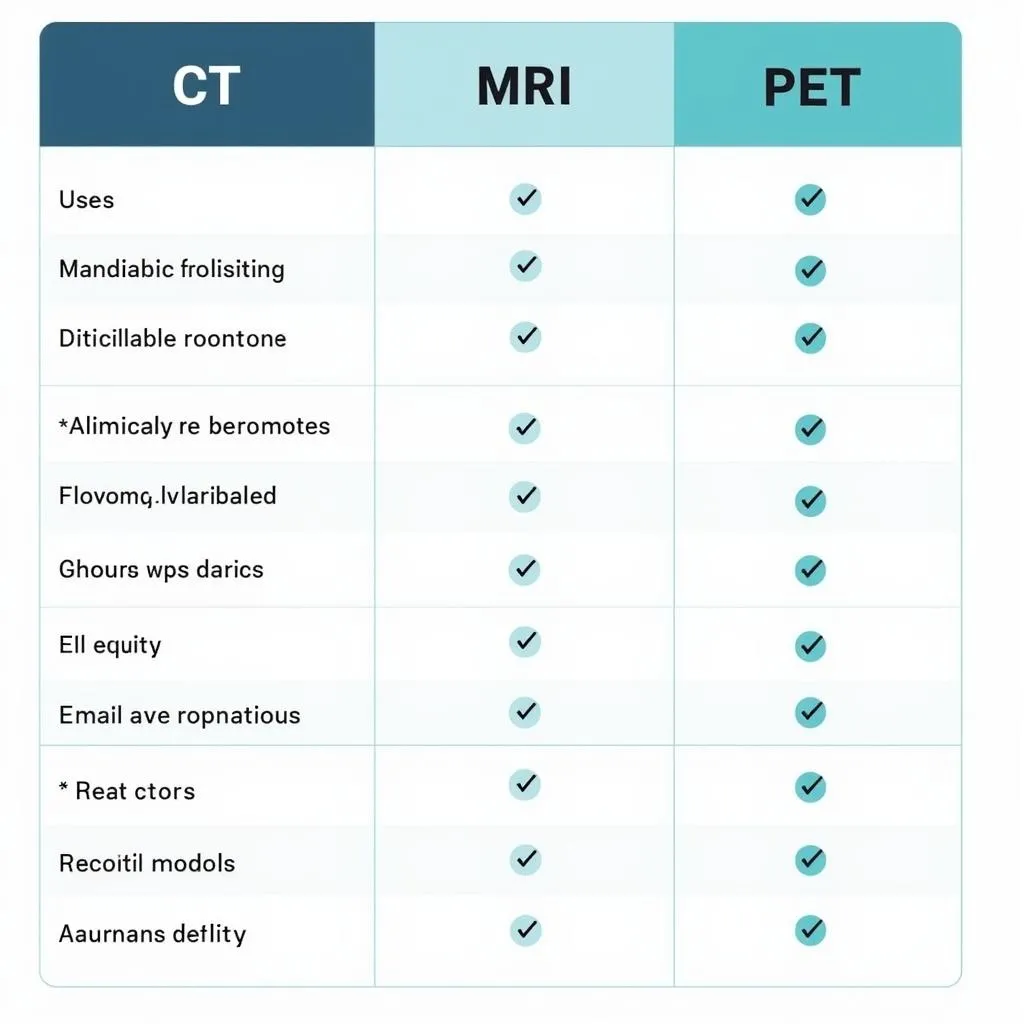A PET scan, or Positron Emission Tomography scan, is an imaging test that can help reveal how your tissues and organs are functioning. This is different from an MRI or CT scan, which primarily show the structure of these areas.
 PET Scan Machine
PET Scan Machine
How Does a PET Scan Work in Detecting Cancer?
A PET scan uses a special radioactive drug, called a tracer, to visualize activity in cells. Since cancer cells grow and multiply rapidly, they tend to absorb more of the tracer than normal cells. This difference in uptake is what allows doctors to identify potential areas of concern.
What Cancers Can a PET Scan Detect?
PET scans are particularly helpful in detecting a variety of cancers, including:
- Lung Cancer: PET scans can often detect lung cancer at an earlier stage than X-rays.
- Lymphoma: This type of cancer affects the lymphatic system, and PET scans are highly sensitive in identifying lymphoma involvement.
- Colorectal Cancer: PET scans can be used to stage colorectal cancer and determine its spread.
- Brain Cancer: While MRI is often the primary imaging modality for brain tumors, PET scans can provide additional information about tumor activity and potential recurrence.
What are the Limitations of PET Scans in Cancer Detection?
While PET scans are powerful tools, they do have limitations.
- False Positives: Inflammatory conditions can sometimes mimic the tracer uptake of cancer, leading to false-positive results.
- False Negatives: Some cancers, especially slow-growing ones, may not absorb enough tracer to be detected, leading to false negatives.
- Not All Cancers: While useful for many, PET scans are not equally effective for all types of cancer.
 Doctor Analyzing PET Scan Results
Doctor Analyzing PET Scan Results
How Accurate are PET Scans for Cancer?
The accuracy of PET scans in detecting cancer varies depending on several factors, including the type and location of the cancer. In general, PET scans have a high sensitivity for detecting many common cancers.
What Happens After a PET Scan?
A radiologist will analyze the images and create a report for your doctor. Your doctor will then discuss the results with you and explain what they mean. It’s important to remember that a PET scan is just one tool used in cancer diagnosis and management. Your doctor will consider all of your test results, medical history, and symptoms when making treatment recommendations.
FAQs
1. How long does a PET scan take?
The actual scan usually takes around 30-60 minutes. However, you should allow for additional time for preparation, such as fasting and the injection of the tracer.
2. Is a PET scan painful?
The procedure itself is generally painless. You might feel a slight pinch when the intravenous line is inserted for the tracer injection.
3. Are there any risks associated with a PET scan?
PET scans involve a small amount of radiation. However, the benefits of early cancer detection typically outweigh the risks.
4. Will my insurance cover a PET scan?
Insurance coverage for PET scans varies. It’s best to check with your insurance provider to understand your specific benefits.
5. What should I do if my PET scan shows something suspicious?
If your PET scan reveals any areas of concern, your doctor will likely recommend further testing or consultations with specialists to confirm the diagnosis and determine the best course of action.
 CT, MRI, and PET Scan Comparison
CT, MRI, and PET Scan Comparison
Need More Information?
Explore our website for detailed articles on:
- Images of a pet scan with cancer
- How long does it take for pet scan results
- CT MRI and PET scans
- How is a PET scan different from an MRI
- PET vs MRI scan
For any assistance, please contact us via WhatsApp: +1(641)206-8880, Email: [email protected]. You can also visit us at 276 Reock St, City of Orange, NJ 07050, United States. Our customer service team is available 24/7.